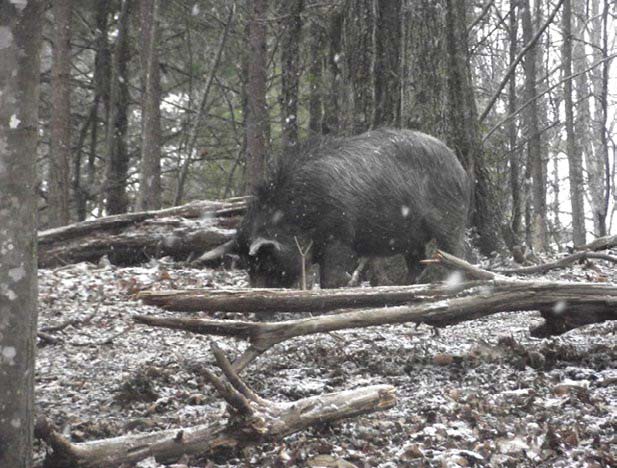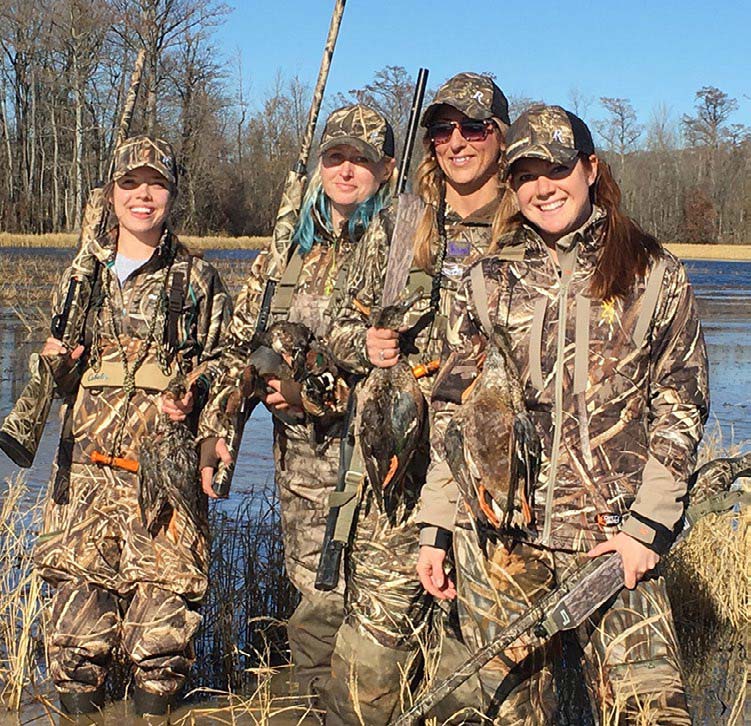You’re probably wondering why there’s a holiday- dinner edition of this column. It’s because as hunters and avid outdoorsmen, we spend a fair bit of time around people who either don’t hunt or who hate hunting—and the holiday season can mean those people are relatives.
Maybe it’s your Great Aunt Edna who thinks hunting is inhumane. Maybe it’s your niece or nephew who truly believes the meat at the grocery store grows in some sort of Styrofoam-tray farm. Regardless of who the objectors might be, it’s important that you understand the value and methodology of avoiding conflict. After all, conflict avoidance and de-escalation are important skills for all gun owners. Here’s how to pull it off when it comes to the topic of hunting and holiday get-togethers.
METHOD 1: JUST WALK AWAY
This might seem overly simplistic, but it’s a tactic that is easier said than done in a lot of scenarios. This is especially true if the family is gathered at a small home or someplace where it’s not easy—or logical—to walk away. When possible, though, there’s nothing wrong with excusing yourself from a potentially volatile chat and walking off. Tell the folks you’re with you need to check the turkey, stir the gravy or collect cranberries straight from the bog. Just find a way to remove yourself. It’s never a bad idea to walk away from someone who’s looking for trouble, whether those folks are family or not.
METHOD 2: CHANGE THE SUBJECT
Your relatives have hobbies and sometimes, outright obsessions. It might be knitting, gardening or visiting military museums, but those hobbies/obsessions exist. Of course, there are two responses you can get from making an attempt at changing the subject: an argument-free shift to the new topic or an outraged statement of how dare you try to change it. If you can find a subtle way to change the topic to something less inflammatory than your deer-hunting habits, great. But if you can’t do this subtly, the results will depend on the person you’re talking to and how willing they are to let go of a “spicier” conversation.
An alternate method might be: Change the subject by involving someone else in the new conversation and inviting them to talk about their kids, their new truck or how they maintain such a brilliant green lawn.

METHOD 3: FACE IT HEAD-ON.
It’s possible to have a calm, reasonable talk about guns, hunting or whatever outdoor activity it is that someone else doesn’t like. Don’t be the person who raises their voice, resorts to name- calling or otherwise behaves badly, though. Be the voice of reason who talks about all the ways hunters take care of the environment, contribute to conservation and eat healthier meat. Talk about the year-round work that goes into a successful hunt—and even a not-successful hunt. Explain that hunters put a lot of time and effort into what might appear to others to be a single moment with a long-pursued buck.
Sometimes you can give the opposing party something new to at least consider. Every so often in these conversations, someone actually changes their mind, but that’s incredibly rare. Don’t get into a conversation expecting to convert your anti-hunting relative to run out and buy a rifle or a bow to hit the woods. Change tends to happen gradually, so be happy with any positive progress you might make. Don’t push for more just because there wasn’t as drastic a change as you’d wanted to see.
METHOD 4: ARGUE.
But wait, you’re thinking…you said not to be That Guy. When I say argue, I’m not referring to a knockdown, drag-out brawl or even a conversation where voices get raised. Depending on the relative you’re talking to, it can be a good idea to debate the issue. If the debate can remain friendly, there’s no reason not to go back and forth on the merits of firearms or hunting. The goal of that isn’t likely to be changing anyone’s mind but simply exchanging ideas in an open forum (which just happens to be a holiday dinner). Who knows, you might give someone else who’s listening to the debate a new idea, or enlighten them to a thought process that makes them feel more positively about hunting or firearms ownership.

METHOD 5: SET BOUNDARIES.
Remember that “No” is a complete sentence. You’re not required to argue, debate or be belittled. It doesn’t matter if it’s a blood relative, family member of choice or a friend on the other end of the conversation. No means no. If you don’t want to be drawn into a conversation, simply refuse. Explain your boundary to the person once (whether that boundary is that you will not discuss hunting with them specifically or that you will not talk about hunting, period). Then, stick to it. Boundaries don’t mean anything if you don’t stick to them, so once you’ve set it, do it. This also means you shouldn’t be trying to set a boundary backed up by an empty threat (such as you are leaving the dinner entirely). Whatever you tie to the boundary, good or bad, that needs to be something you can and will be able to follow through And remember, whoever argues the loudest about the fact that you set a boundary is probably the person who needs that boundary in place the most.

sometimes necessary to spend time around non hunters
PHOTO CREDIT KAT STEVENS
METHOD 6: DON’T GO
But it’s [insert holiday/family member’s name/magical milestone here]! You have to attend!
No, you don’t. This method follows closely on the heels of the value of setting boundaries. When attending a holiday brunch, dinner or other event is guaranteed to involve conflict and dealing with a person or people who refuse to behave like mature, rational adults, there’s no reason for you to be present.
As long as your reason for not attending is reasonable (as opposed to simply being dramatic yourself) you can just not go. Send your regrets and respectfully decline. Drop off a pecan pie or a nice bottle of wine the day before. Don’t feel guilty about not putting yourself or your other immediate family members in the position of potentially being treated badly. Yes, a little conflict and frustration is part of life, but we all know the difference between normal levels of conflict and actual toxic behavior (or at least we should all know the difference).
As outdoorsmen, it’s our responsibility to do things like respect the sacrifice the animal made to feed us, deliver an ethical, one-shot kill and not cram our beliefs down others’ throats.
It can be disappointing when people we’re close to don’t have any interest in hunting or shooting and it gets downright insulting and infuriating when those people resort to bad behavior aimed right at us because we like to hunt or shoot. But as responsible hunters and shooters, we should be able to deal with those situations with relative grace, even if that means walking away or not going.
After all, it’s holiday time, and that should be an enjoyable experience. It shouldn’t feel like a grueling ruck march through ankle-deep mud and brambles!
So, happy holidays—all the holidays—from our family to yours.
Per our affiliate disclosure, we may earn revenue from the products available on this page. To learn more about how we test gear, click here.



